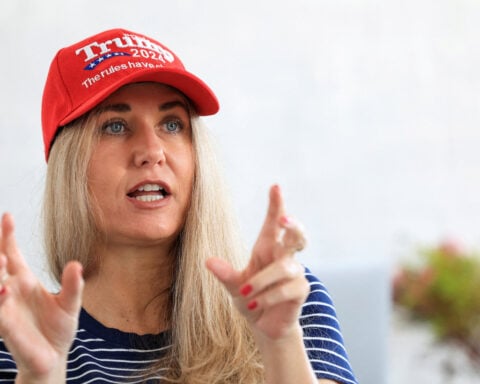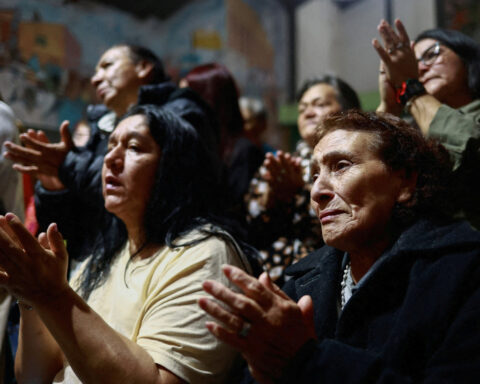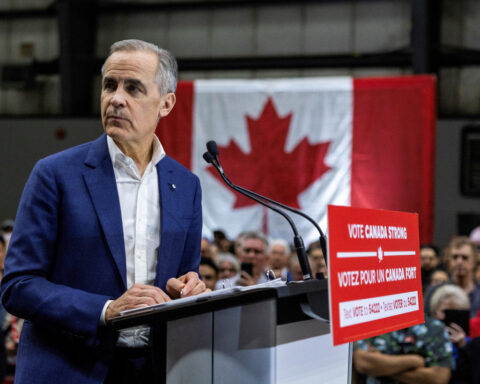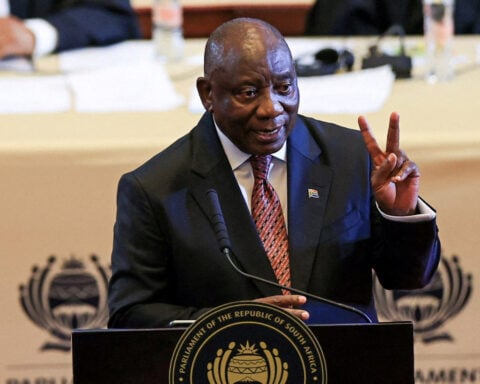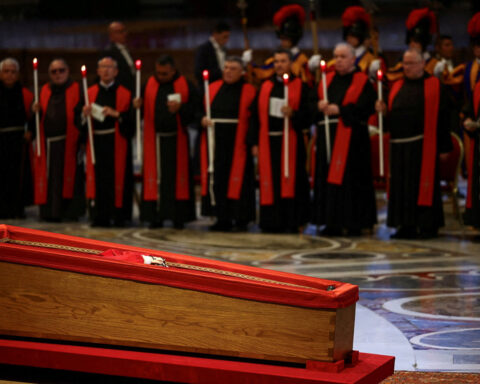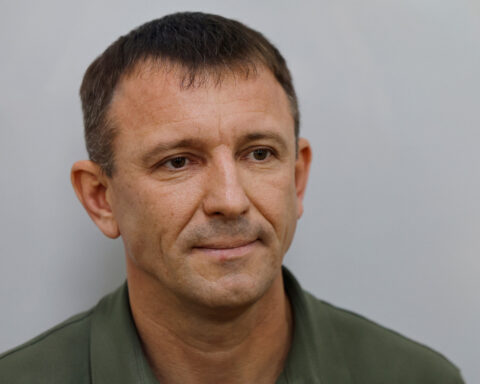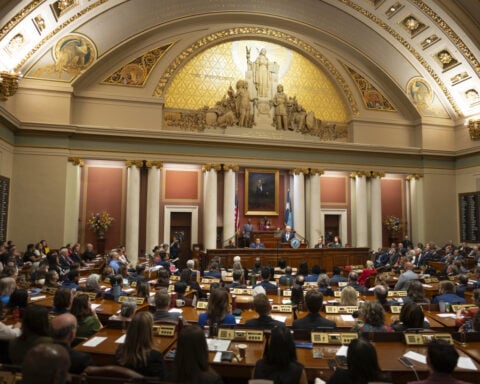By Luc Cohen, Ted Hesson
NEW YORK (Reuters) -A day after the U.S. Supreme Court lifted a temporary ban on President Donald Trump's use of a 1798 law to speed up deportations of alleged Venezuelan gang members, civil rights groups brought a fresh challenge in a sign that legal battles over the Alien Enemies Act will continue.
Two Venezuelan men detained in Goshen, New York, asked U.S. District Judge Alvin Hellerstein in Manhattan on Tuesday to prevent Trump's administration from moving them out of his jurisdiction or using the 18th century law to justify their expedited deportations.
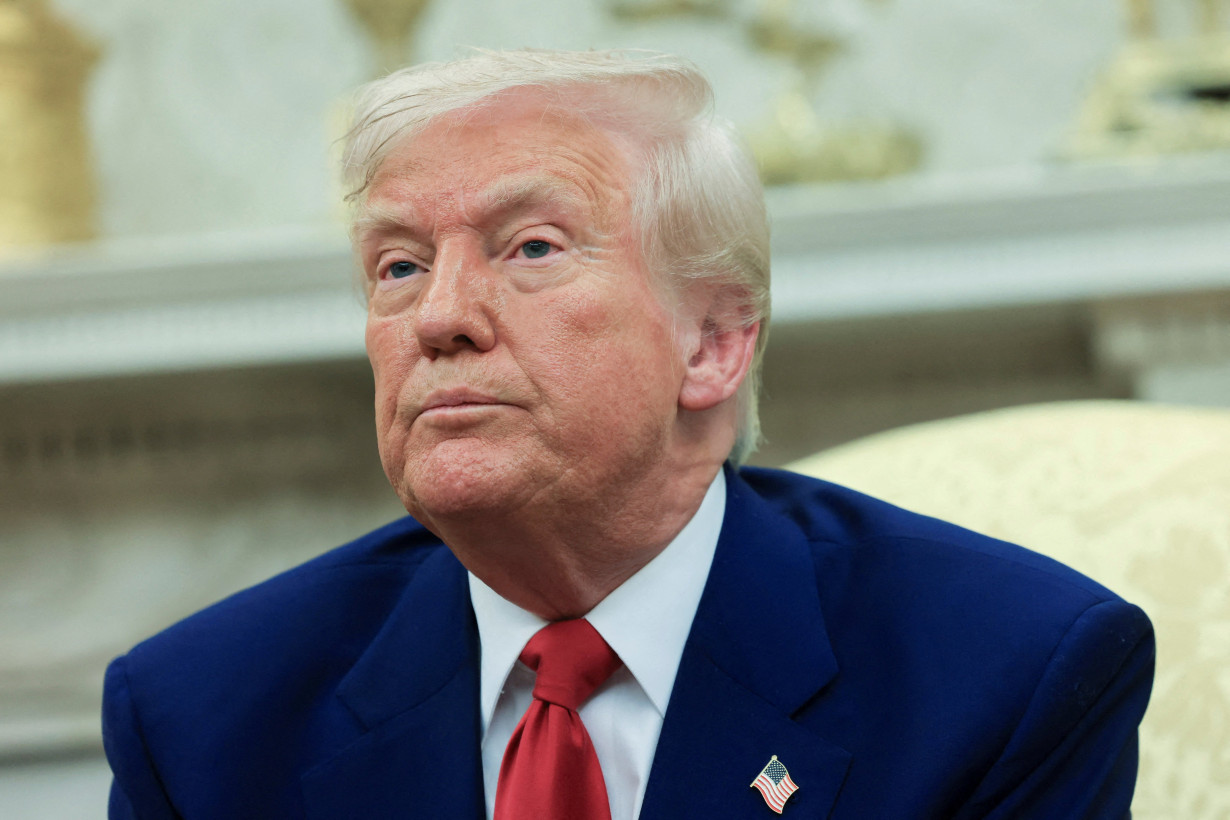
Hellerstein set a hearing for Wednesday at 10 a.m. EDT (1400 GMT) to consider the request by two migrants, referred to in court papers by their initials G.F.F. and J.G.O., to be protected from deportation while the judge weighs their broader challenge. Their lawyers are seeking to have the case represent a larger group that could number in the thousands, known as a class, of Venezuelans targeted for removal under the law.
The suit, brought by the American Civil Liberties Union in a different court than the last challenge, represents a new chapter in the legal battle over Trump's use of Alien Enemies Act after a Supreme Court ruling that both the Trump administration and ACLU sought to portray as a win.
In an unsigned 5-4 decision on Monday night powered by its conservative justices, the court granted the administration's request to end Washington-based U.S. District Judge James Boasberg's two temporary orders preventing deportations of alleged members of the Tren de Aragua gang under the Alien Enemies Act.
Despite siding with the administration, the court placed limits on how deportations may occur. It emphasized that the U.S. government must give sufficient notice to immigration detainees to allow them to contest their deportation.
In Tuesday's lawsuit, the two plaintiffs said they had not been given the opportunity to contest the government's claims that they belonged to Tren de Aragua, which the United States has described as a foreign terrorist organization.
"There remains an unacceptably high risk that the government will deport class members who are not in fact members of TdA (Tren de Aragua)," the ACLU wrote in a court filing.
As of March 18, there were 258 alleged gang members in immigration proceedings, including 86 who were in custody, according to U.S. Immigration and Customs Enforcement.
In a social media post on Tuesday, Trump-appointed U.S. Attorney General Pam Bondi said, "We will continue to deport violent terrorists."
Trump invoked the Alien Enemies Act, a law best known for its use to intern Japanese, Italian and German immigrants during World War Two, on March 15 to deport the alleged Tren de Aragua members without final removal orders from immigration judges, as is normally required.
Boasberg that day granted the ACLU's request for a temporary block on the deportations, finding that Trump's order may have exceeded his powers because the Alien Enemies Act authorizes removals only when war has been declared or the United States has been invaded.
Two deportation flights were in the air at the time Boasberg issued that order, and hundreds of Venezuelans were handed over to officials in El Salvador, where they are being imprisoned. The Supreme Court's ruling did not address how people currently held in El Salvador can seek judicial review.
Boasberg is separately weighing whether Trump administration officials should be held in contempt of court for failing to return the two flights. The administration has said it complied with Boasberg's order.
In ending Boasberg's temporary restraining orders, the Supreme Court said detainees should have contested their deportations in Texas, where they were confined, rather than in Washington. G.F.F. and J.G.O. were transferred to New York on April 4, their lawyers said.
(Reporting by Luc Cohen in New York and Ted Hesson in Washington; Additional reporting by Tom Hals in Wilmington, Delaware; Editing by Will Dunham and Mark Porter)

 Trump has begun another trade war. Here's a timeline of how we got here
Trump has begun another trade war. Here's a timeline of how we got here
 Canada's leader laments lost friendship with US in town that sheltered stranded Americans after 9/11
Canada's leader laments lost friendship with US in town that sheltered stranded Americans after 9/11
 Chinese EV giant BYD's fourth-quarter profit leaps 73%
Chinese EV giant BYD's fourth-quarter profit leaps 73%
 You're an American in another land? Prepare to talk about the why and how of Trump 2.0
You're an American in another land? Prepare to talk about the why and how of Trump 2.0
 Chalk talk: Star power, top teams and No. 5 seeds headline the women's March Madness Sweet 16
Chalk talk: Star power, top teams and No. 5 seeds headline the women's March Madness Sweet 16
 Purdue returns to Sweet 16 with 76-62 win over McNeese in March Madness
Purdue returns to Sweet 16 with 76-62 win over McNeese in March Madness

